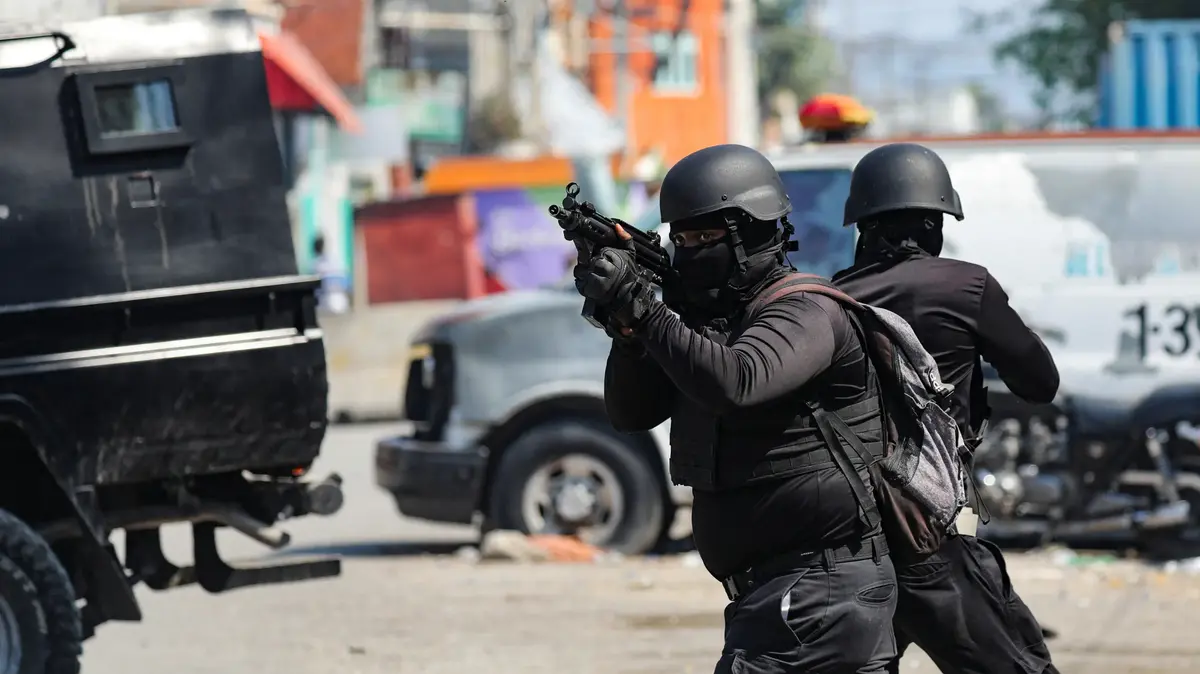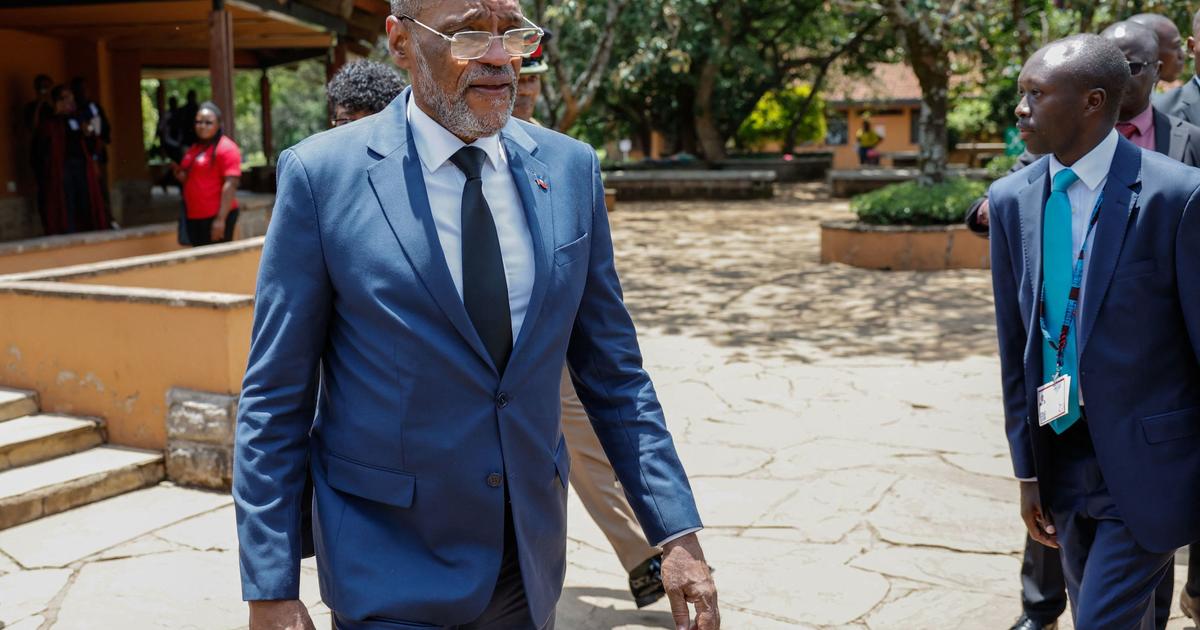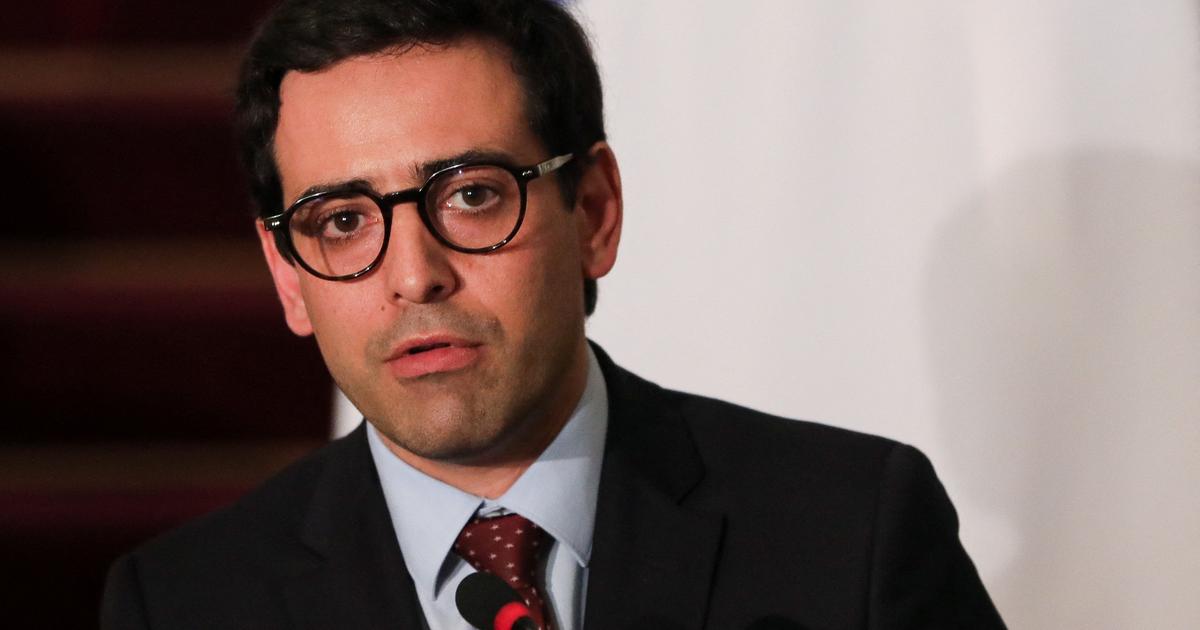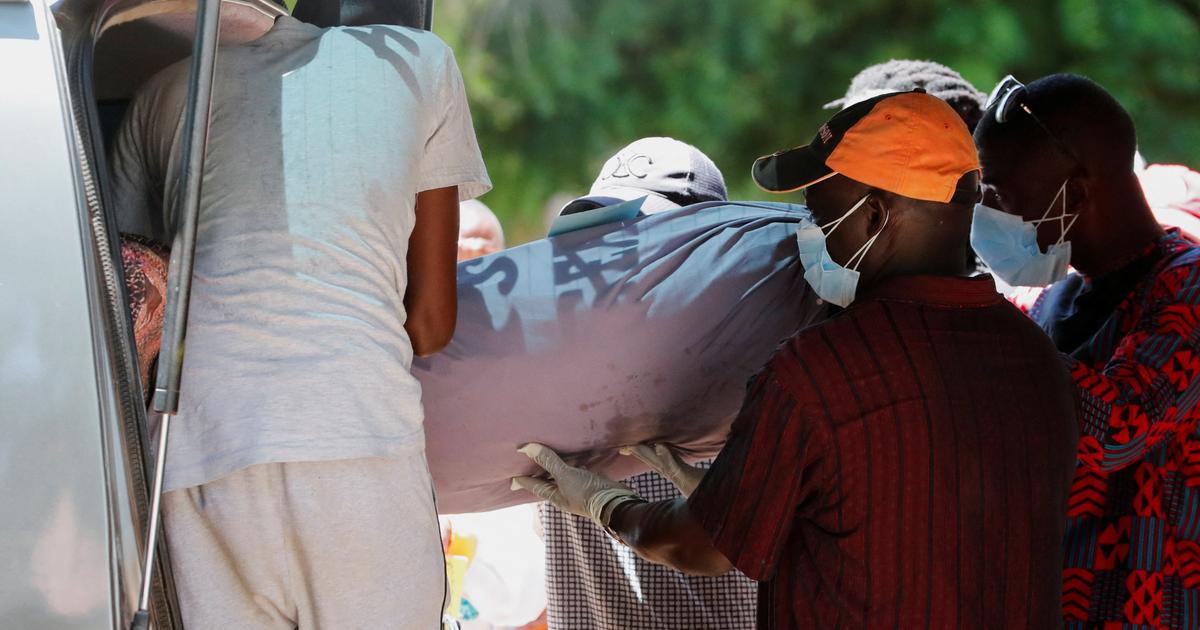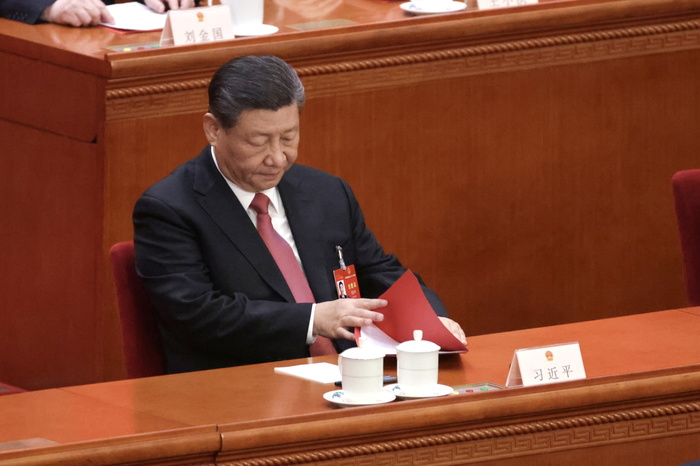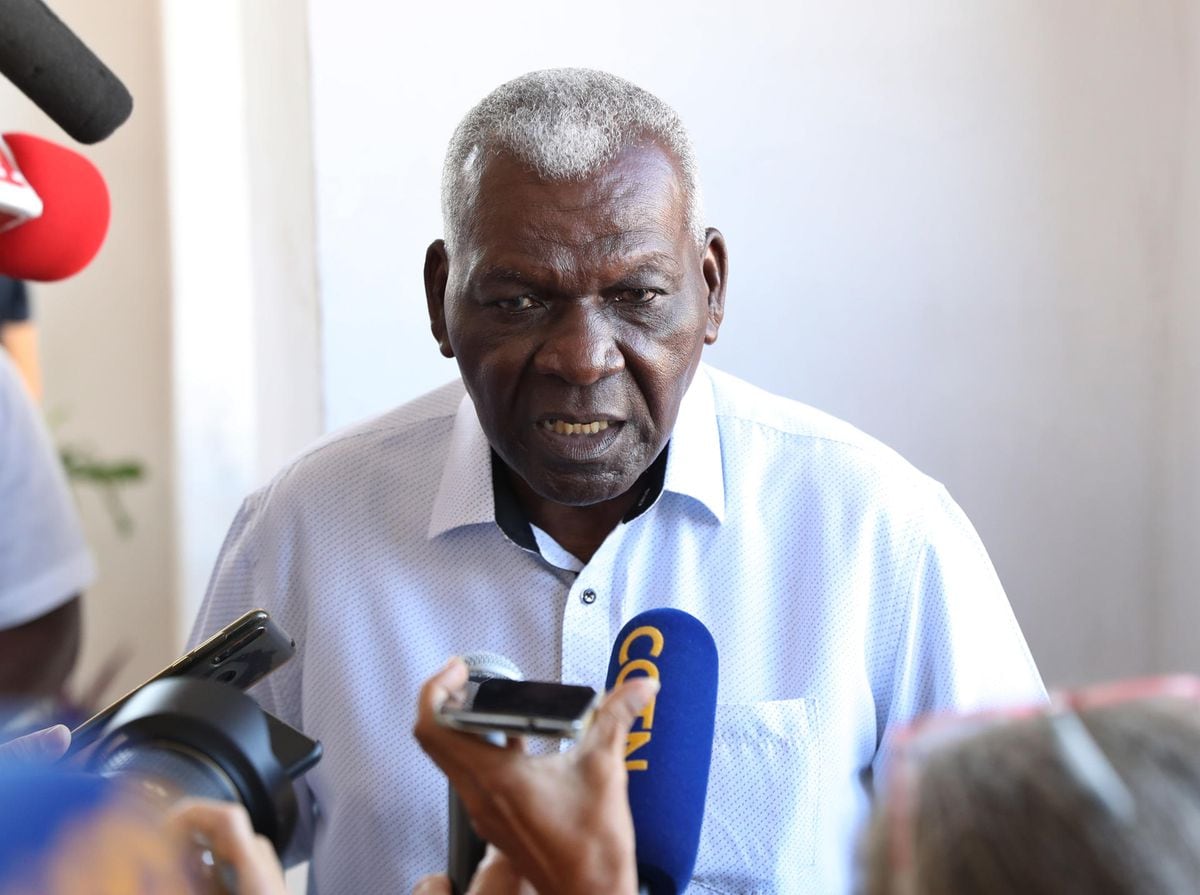Enlarge image
Scene in Kenya's capital Nairobi on Monday: Odinga supporters in the Kibera district
Photo: MARCO LONGARI / AFP
Pillars of smoke rise over Kisumu in western Kenya, the city is the stronghold of the Kenyan loser in the election, Raila Odinga.
Tires are burning in front of the international airport, a group of young people break stones, they shout at the SPIEGEL team: "We don't want Ruto, we want Raila!", "Away with Ruto", "No Raila, no peace!" there are street fights with the police, not only here at the airport.
Tear gas is in the air in the city, there are roadblocks everywhere, criminals are taking advantage of the situation and extorting money from passing cars.
Late in the evening, the bangs of tear gas guns can be heard all over the city.
William Ruto, who had been the country's vice president for the past nine years, ultimately prevailed by a razor-thin margin: he received 50.49 percent of the votes, his rival Odinga 48.85 percent.
Shortly before the election results were announced, a scuffle broke out in the counting center in the capital Nairobi on Monday afternoon.
Apparently, several members of the electoral commission were injured.
The background: As the Reuters news agency reported, the deputy head of the election commission and three other members of the committee do not want to recognize the result.
"We are not able to stand behind the results that are being announced," said Juliana Cherera accordingly.
The sudden split in the commission came minutes after Raila Odinga's chief representative said she could not verify the results and made allegations of "electoral abuse" without providing details or evidence.
Odinga did not appear on site to announce the results.
Raila Odinga's supporters in the city of Kisumu cheered on the streets before the results were announced on Monday, as if their candidate had already won.
Now the frustration about the defeat is great - and with it the concern of demonstrations and unrest.
Public life largely came to a standstill on Monday afternoon, and the first demonstrators took part
clashes with the police.
The greatest fear of the people in the country: that scenes like those after the 2007/2008 election could be repeated.
At that time, the country sank into chaos after the presidential elections, different ethnic groups attacked each other, more than 1000 people died, hundreds of thousands were displaced.
Ruto was on the side of his current rival Raila Odinga at the time, and Ruto's followers raged particularly badly.
The politician was accused of organizing his own private army and fueling the violence.
The International Criminal Court in The Hague opened a case against him.
But the process was discontinued in 2016 – also because numerous witnesses had been influenced.
Ruto is legally innocent, but not completely exonerated.
What was this election about?
The problems in Kenya are great: the country's inhabitants are struggling with rising living costs and skyrocketing prices.
Many have had to reduce their meals, and some are starving.
In the north of the country, there is also a devastating drought that is decimating livestock and driving people off their ancestral lands.
These were also the dominant issues during the election campaign.
But many voters did not believe that the candidates in the presidential race had an answer ready.
"After the election, the politicians will disappear again anyway," SPIEGEL has repeatedly heard in conversations with young people.
The result of the lack of trust: In the end, voter turnout was the lowest it had been in 15 years, at 65 percent.
Young people in particular stayed away from the election.
Who is William Ruto?
Ruto was previously Vice-President Uhuru Kenyatta.
But the two have fallen out for a long time, so Kenyatta supported Ruto's rival Odinga in the election campaign.
Ruto skillfully exploited this position: he acted as if he were the underdog, as if he had nothing to do with the government and had never been part of power.
The vice president presented himself as a "hustler," a simple man of the people who didn't come from a rich family of politicians.
His election campaign symbol was the wheelbarrow, and he usually appeared in a hooded sweatshirt.
"Bottom Up" was Ruto's slogan, he promised an economy that should primarily strengthen the informal sector and the poorer classes.
That went down well in the densely populated areas of the country, especially among young people – if they voted.
But many consider Ruto's promises to be pure populism.
In addition, Kenyans ask themselves where their own wealth comes from, given that they come from humble backgrounds.
Did he enrich himself in power?
His vice-presidential candidate, Rigathi Gachagua, is also facing serious allegations of corruption, and the government has frozen 1.6 million euros of his assets.
What's next and what's at stake?
Observers expect that Odinga and his team will now try to challenge the election in court.
Activists have already submitted initial petitions to prevent Ruto from taking the oath of office.
In the next few weeks, there could be a legal mud fight that will delay the change of office.
The current president has significantly fewer powers during this time - a dangerous power vacuum in a crisis that requires fundamental decisions.
A defeat for the incumbent President
Uhuru Kenyatta tried everything to help Ruto's rival Raila Odinga win.
Shortly before the election, he introduced subsidies on cornmeal to defuse the cost of living issue.
In the past few days, Kenyatta has been touring across the country to quickly inaugurate stadiums, ports and roads.
The message was clear: if this is to continue, Odinga will vote.
But Kenyatta's plan didn't work out, she even failed spectacularly.
Ruto's election shows how frustrated the Kenyan people are and how big the problems in the country are.
Because while the residents are struggling with rising prices and unemployment, President Kenyatta devoted himself to major infrastructure projects, leading the country ever deeper into the debt crisis.
The population wonders why they need a toll highway in Nairobi when there is no dinner on the table at home.
The election of William Ruto is therefore above all a resounding slap in the face for the outgoing President Uhuru Kenyatta.
Even his own ethnic group, the Kikuyu, turned against him and the majority voted for Ruto.
Now Kenyatta may have to worry about his wealth: his family owns a widespread business empire and estates throughout Kenya.
Had his ally Raila Odinga become president, Kenyatta could have rest assured that these would remain untouched.
A President Ruto could now be dangerous for him.
How did the election go?
The electoral authority IEBC was under great pressure: the last ballot in 2017 was canceled by the Supreme Court due to serious errors and had to be repeated, a huge disgrace.
In order to make everything better this time, the procedure was changed.
The results from the 46,000 polling stations were uploaded online directly on election day, so that theoretically everyone can count the votes themselves.
The results were then verified in a complex process in Nairobi over a period of five days.
Nevertheless, there were still a few problems: biometric devices did not work, and some of the voting documents were incorrect.
In two districts, the governor election had to be postponed at the last minute.
Overall, however, observers praised the election as comparatively smooth, and the election day itself was largely non-violent.
However, there was some confusion after the vote was cast.
The media added up the results from the polling stations that were available online, published constantly updated interim results, and it was a neck-and-neck race.
But suddenly they stopped counting, probably under pressure from the authorities or the editors-in-chief, the Kenyans remained in the dark for days.
This confused situation also revealed the toxic role played by social media: the craziest conspiracy stories were already circulating before the election Tuesday, the respective political opponents were being smear campaigns, and ethnic differences were also served on WhatsApp and Facebook.
Rumors of alleged electoral fraud circulated frequently.
Things didn't look any better after the election, with bloggers and social media activists announcing alleged winners while the count was still going on.
A dangerous mix.
The Internet trolls on behalf of the candidates have been busy getting involved in the fake news business.
During the counting in the election center in Nairobi, there were already several chaotic scenes, especially Raila Odinga's team repeatedly caused unrest - probably knowing that the election had been lost.
In the end, four representatives of the Kenyan election commission made the chaos perfect, they fell out with their boss and refused to announce the election results.
The protests in Kisumu followed immediately.
This contribution is part of the Global Society project
Expand areaWhat is the Global Society project?
Under the title "Global Society", reporters from
Asia, Africa, Latin America and Europe
report on injustices in a globalized world, socio-political challenges and sustainable development.
The reports, analyses, photo series, videos and podcasts appear in a separate section in SPIEGEL's international section.
The project is long-term and is supported by the Bill & Melinda Gates Foundation (BMGF).
A detailed FAQ with questions and answers about the project can be found here.
AreaWhat does the funding look like in concrete terms?open
The Bill & Melinda Gates Foundation (BMGF) has been supporting the project since 2019 for an initial period of three years with a total of around 2.3 million euros - around 760,000 euros per year.
In 2021, the project was extended by almost three and a half years until spring 2025 under the same conditions.
AreaIs the journalistic content independent of the foundation?open
Yes.
The editorial content is created without the influence of the Gates Foundation.
AreaDo other media also have similar projects?open
Yes.
With the support of the Gates Foundation, major European media outlets such as The Guardian and El País have set up similar sections on their news sites with Global Development and Planeta Futuro respectively.
Did SPIEGEL already have similar projects? open
In recent years, SPIEGEL has already implemented two projects with the European Journalism Center (EJC) and the support of the Bill & Melinda Gates Foundation: the "OverMorgen Expedition" on global sustainability goals and the journalistic refugee project "The New Arrivals ", within the framework of which several award-winning multimedia reports on the topics of migration and flight have been created.
Expand areaWhere can I find all publications on the Global Society?
The pieces can be found at SPIEGEL on the Global Society topic page.


